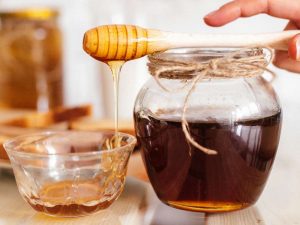Honey consumption costs Nigeria $3bn in import bill
December 19, 2022391 views0 comments
By Saby Elemba
Nigeria’s over 400,000 tonnes honey consumption is costing the country an estimated $3 billion in import bill, it has emerged.
Apiculturists attending a recent summit in Imo State have seen the usefulness and the potentials in honey and the huge amount estimated at $3 billion that is spent yearly in importing the product into Nigeria, and are now urging Nigerians to embrace honey bee production to enable the country meet its increasing local demands for honey and save the country from the huge import bill.
Stanly Udeh, president, BeeKeepers Association, Imo State, made the special call to Nigerians during a workshop on prospects of modern beekeeping technology organised by the Nigerian Export Promotion Council (NEPC), in Owerri.
Read Also:
A notable professional apiculturist, Udeh decried the low volume of honey production in the country, which was hampering the exportation of the product because the country is yet to meet its local demand.
Speaking on the theme: “Exploring the Potentials of Honey Value Chain for Export”, he informed that with an annual consumption of over 400,000 tonnes, Nigeria could save over $3 billion spent on importation of honey, with holistic investment in bee farming.
He further stated that in addition to money making from the sale of honey, bee farming had the potential to create jobs for tailors who make beekeepers suits and carpenters who make hives.
According to him, some agricultural activities require pollination of plants by bees, hence the need for increased investment in bee farming.
“We can barely meet 10 percent of local demand, let alone our export demands. A bee farm can be started with about N30,000, so we encourage Nigerians to venture into this enterprise, ” he urged.
Kingsley Nwaogu, another beekeeper, said that apiculturists were grappling with the challenge of bad roads affecting the mobility of bee colonies and resulting in breakages of the honey comb when they are transported from place to place.
He called on the government to ensure a sustainable honey bee supply chain by addressing production challenges and enlisting beekeeping in agricultural enterprises, for economic emancipation and biodiversity.
Earlier in a welcome address, Ezra Yakusak, executive director of the NEPC, said that the council desired to increase the presence of made in Nigeria products in the international market through trade houses as hubs in various countries.
Yakusak, who was represented by Tony Ajuruchi, NEPC’s trade promotion advisor in Imo State, informed that with expanded production and supply base for agricultural and value-added exports, Nigeria could increase contributions of non-oil exports to her gross domestic product (GDP).
“As a council, NEPC will continue to support bee farming technically to ensure that you produce quality honey. I wish to appreciate one of you who won the MSME National Clinic Award. Let us all join hands to achieve this for the survival of our nation, ” he said.

